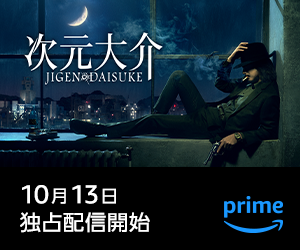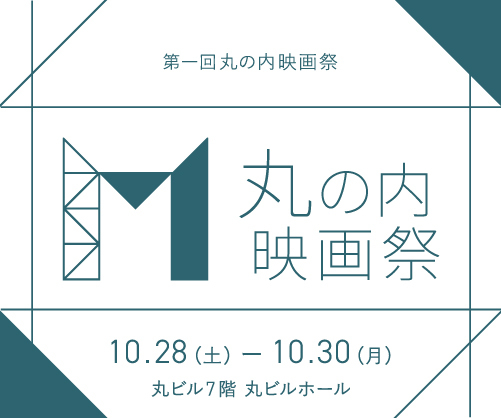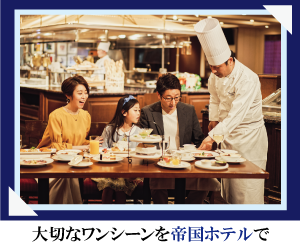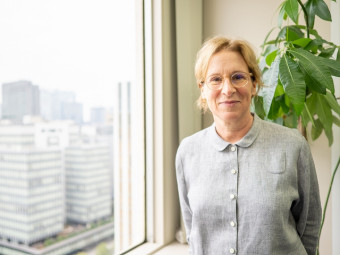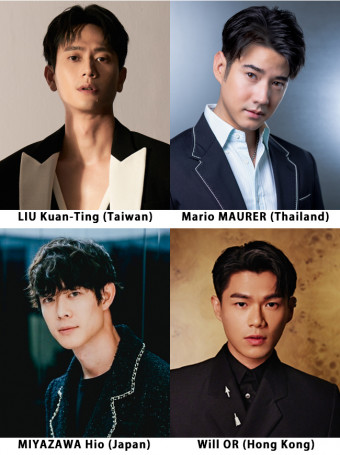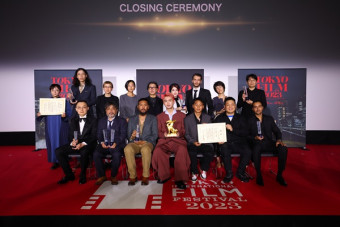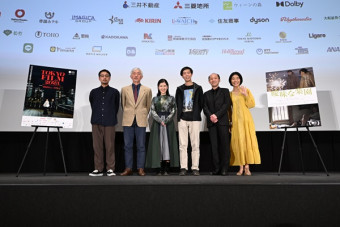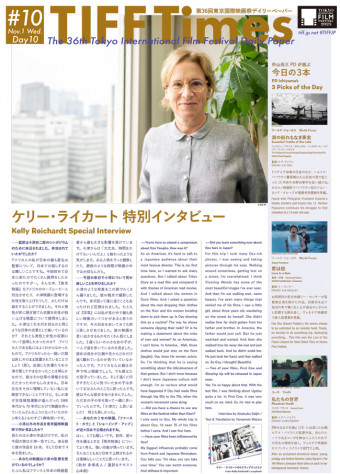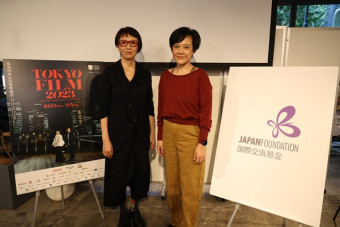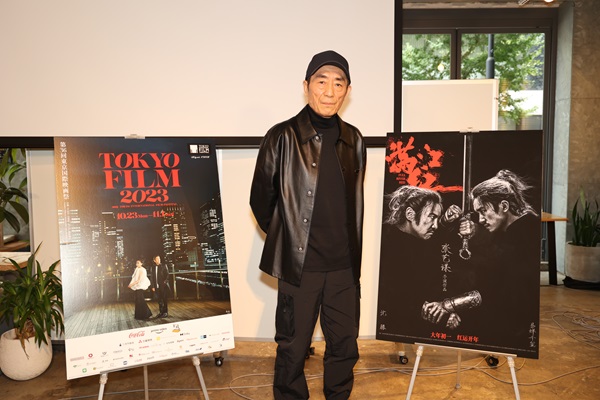
This year’s TIFF Lounge talks are taking place once again at the chic café Yurakucho micro Food & Idea Market. Co-presented by The Japan Foundation and TIFF, the events feature casual chats with internationally acclaimed filmmakers, and are one of the highlights of the 36th Tokyo International Film Festival.
On October 25, the café’s ample windows turned the space into a veritable fishbowl, when legendary Chinese auteur Zhang Yimou dropped by to deliver a masterclass. As hordes of office workers on their lunch breaks peered in from outside, the director regaled those inside with tales of his decades at the pinnacle of the industry.
Zhang had been given a Lifetime Achievement Award on TIFF’s Opening Night, and he also appeared at a Q&A discussion following the Japanese premiere of his latest historical epic, Full River Red, in the Gala Selection. Still, it wasn’t until the TIFF Lounge that he had a chance to discuss his working method. As he told the audience, he tries to surround himself with professionals who are so proficient that he can operate from within his own imagination and work almost exclusively with the actors.
“Film production is a kind of chain,” he said, “And the most important link is the actors, because they are the characters that drive the film. Therefore, their opinions are invaluable, and on set I listen to them carefully. If something they say has merit, then I incorporate it into the film.” This respect for the actors’ input is so important to Zhang that all other technical matters—be it production design, sound design or lighting—are hammered out prior to shooting, and once he’s on set, he expects it all to be done accordingly.
This focus on performance often makes those sets rather cluttered, however, as he explained while describing the on-site activity for Full River Red. “For many scenes we used eight small cameras because it’s an ensemble film with top actors,” he said. “The dialogue has already been worked out in rehearsal, so my aim is to get the facial expressions right, which means as many cameras as possible. You can do the scene in one take and get the most immediate response of the actors. We can also wrap quickly.”
This method sometimes confuses the actors. “All I did was just sit in front of the monitor like a security guard in a condominium. The actors would sometimes come to my tent and were surprised because I was watching eight monitors at the same time. ‘How can you do that?’ I look at more monitors than any other Chinese director.”
Another aspect that distinguishes Zhang from other Chinese filmmakers is the broad scope of his interests, not only in movie subject matter, but in life in general. Everyone knows that he was the artistic director of the Beijing Olympics (both of them!), but few probably know that he himself started out as an actor. As TIFF Lounge moderator Ishizaka Kenji pointed out, Zhang’s first “appearance” at TIFF was when he won an acting award for the film Old Well (1987) at the first edition of the festival. Sadly, he wasn’t able to attend because he was busy doing other things, like being director of photography for Chen Kaige’s debut film, Yellow Earth.
Zhang recalled that he heard about his award from a line producer. “There were no cellphones in those days, and I was on location in the Gobi Desert. He said I won an award at TIFF. When the actors on the set heard that, they said, ‘but you’re a director!’ They didn’t want to act anymore.”
“In those days, I was a quiet guy,” he said, when asked how his career had changed his character. “But once I became a director I had to have relationships with many people, and had to say things I didn’t always want to say. I think I talk too much nowadays, and I repeat things a lot, and I probably don’t have to do that.”
Ishizaka mentioned that Zhang’s children seem to be following in his footsteps. His oldest daughter has already made a few films, and his son, who acts in Full River Red, is currently studying animation at the University of Southern California. “When he went to [Chinese] University, he learned how to make live action films,” said his father, “but now he wants to make animated films, which I know little about.” He mentioned that his wife often complains that all four of their children seemed destined to be in the film industry, a prospect he spoke of in an ominous tone.
“When it comes to filmmaking, you have to be fit to do your job,” he elaborated. “So no smoking or drinking for me. Another thing you have to pay close attention to is your investors, because without their support you can’t even start. I consider myself an artist, but an artist can only survive with investors. And I know I have a responsibility toward them. If I don’t recoup their investment, I will disappoint them.”
Zhang was asked about working with the late Japanese superstar Takakura Ken on Riding Alone for Thousands of Miles (2005), and termed it a “life-changing” experience. “I was constantly on my feet during that shoot,” he explained, “because that’s the way Ken is on set. He never sat down, despite his advanced age at the time. I asked his interpreter about it and she said he was like that when he worked. So I decided to replace all the chairs on set with high tables, forcing everyone else to stand as well.”
TIFF Lounge Co-presented Loungeby The Japan Foundation & Tokyo International Film Festival
Zhang Yimou Masterclass
Guest Speaker:Zhang Yimou (Filmmaker)
Moderator: Ishizaka Kenji(Senior Programmer, Tokyo International Film Festival / Professor, Japan Institute of the Moving Image)












